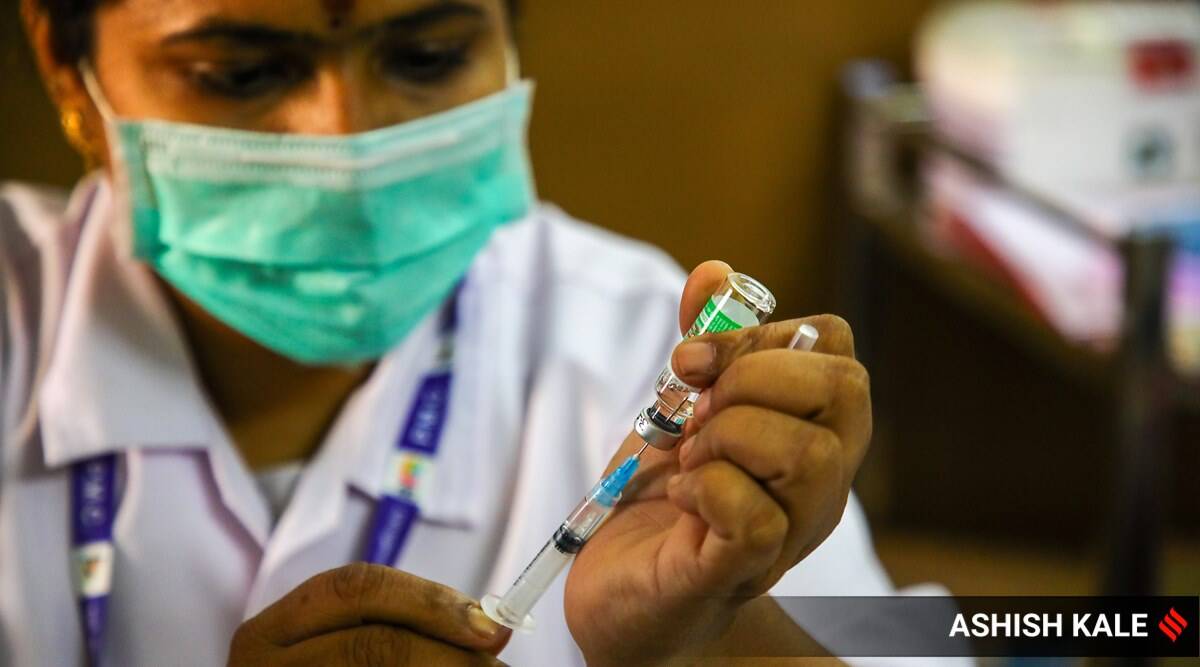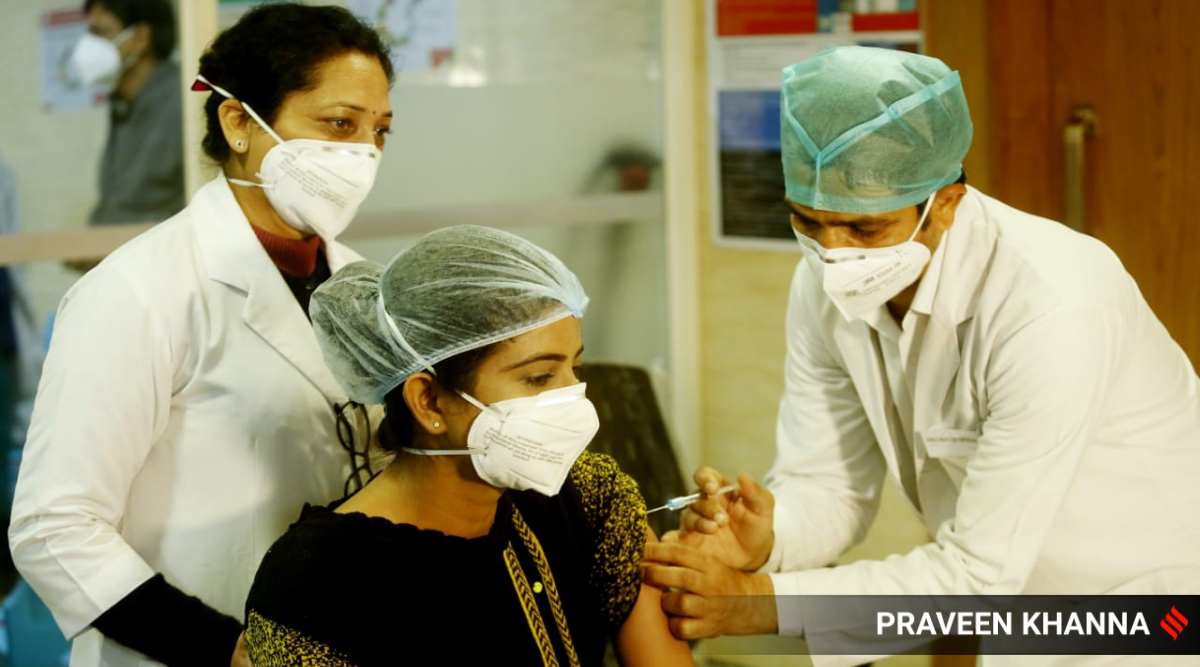 At a vaccination centre in Pune.
At a vaccination centre in Pune. Amidst a growing surge in Covid-19 cases across the country, the government will roll out the third phase of its vaccination drive from April 1. The Centre has warned that the situation is going from “bad to worse” and urged states to achieve 100 per cent vaccination coverage of those above the age of 45 years in surge districts within the next two weeks.
Here’s everything you need to know about the next phase of the vaccination:
Who all are eligible for vaccination from April 1?
All above the age of 45 years will be eligible for a vaccine shot from April 1.
The vaccination drive was kicked off in January with healthcare workers and frontline workers getting inoculated first. It was followed by the second phase in which senior citizens (above 60 years of age) and people aged 45 or older with comorbidities were eligible.
How to register for Covid-19 vaccination?
One can register self for Covid-19 vaccination through the government’s Co-Win portal using the link–http://www.cowin.gov.in. One can also register for vaccination through the AarogyaSetu App.
 Vaccination drive being held at Pune Khedshivapur’s village.
Vaccination drive being held at Pune Khedshivapur’s village.
As per the health ministry rules, up to 4 persons can be registered for vaccination using the same mobile number.
Is online registration mandatory?
No. Apart from online registration, one can also visit any vaccination centres nearby (both private or government) for an on-spot registration.
Is the vaccine free?
Currently, vaccination at government hospitals and clinics are free. However, vaccination at private hospitals will cost up to Rs. 250 per dose.
Are there any side effects of the vaccine?
Some people may experience side effects such as tiredness, fever, chills, nausea, vomiting, joint pain after getting vaccinated. These side effects are common and are likely to subside within a day or two.
Which Covid-19 vaccines are being used in India? Can you choose?
Two vaccines have been granted authorization in India: Covishield (Oxford-AstraZeneca’s vaccine manufactured by Serum Institute of India) and Covaxin (manufactured by Bharat Biotech Limited).
 A woman walks past graffiti depicting a Covid warrior in Mumbai. (Express photo: Amit Chakravarty)
A woman walks past graffiti depicting a Covid warrior in Mumbai. (Express photo: Amit Chakravarty)
At present, beneficiaries cannot choose between two vaccines.
What documents does one need for vaccination?
Documents including Aadhaar card, driving licence, health insurance, smart card issued by the Ministry of Labour, MNREGA guarantee card, MNREGA job card, official identity card issued by MPs, MLAs, PAN card, passbook of bank or post office, passport, pension documents, service identity card issued to employees by central/state government or public limited companies, and Voter ID cards can be used for registration.
Will a person receive a vaccination certificate?
Yes, a provisional certificate will be provided after the first dose. Upon completion of the second dose, the beneficiary will receive a link to download a digital certificate of vaccination.
This certificate can also be saved in the Digi-locker.
Can confirmed or suspected Covid-19 patients receive vaccination?
The government has said that individuals with confirmed or suspected Covid-19 cases should defer vaccination for 14 days after showing symptoms.
 At a vaccination centre in Pune.
At a vaccination centre in Pune.
This is done in order to prevent the risk of spreading Covid-19 infection at the vaccination site.
How has the vaccination drive been so far?
As per the latest data provided by the health ministry, over 6.30 crore vaccine doses have been administered through 10,46,757 sessions across the country. These include 82,16,239 healthcare workers (first dose), 52,19,525 HCWs (2nd dose), 90,48,417 frontline workers (first dose) and 37,90,467 FLWs (2nd Dose), 73,52,957 (1st Dose) and 6,824 (2nd dose) beneficiaries aged more than 45 years with specific co-morbidities and 2,93,71,422 (1st Dose) and 48,502 (2nd dose) beneficiaries aged more than 60 years.
Should you avoid alcohol after receiving the Covid-19 vaccine?
There is no need to abstain from alcohol only because you have taken your shot of the vaccine. Alcohol will not by itself render the vaccine ineffective against the novel coronavirus infection.
 During the vaccination drive in New Delhi.
During the vaccination drive in New Delhi.
The Health Ministry says that as per experts “there is no evidence of alcohol impairing the effectiveness of the vaccine”. Read our explainer to know more.
Can one take painkillers before or after a Covid-19 vaccine?
Don’t take them before a shot to try to prevent symptoms, but if your doctor agrees, it’s OK to use them afterwards if needed.
The concern about painkillers is that they might curb the very immune system response that a vaccine aims to spur. Vaccines work by tricking the body into thinking it has a virus and mounting a defense against it. That may cause temporary arm soreness, fever, muscle aches or other symptoms of inflammation — signs the vaccine is doing its job.
- The Indian Express website has been rated GREEN for its credibility and trustworthiness by Newsguard, a global service that rates news sources for their journalistic standards.

